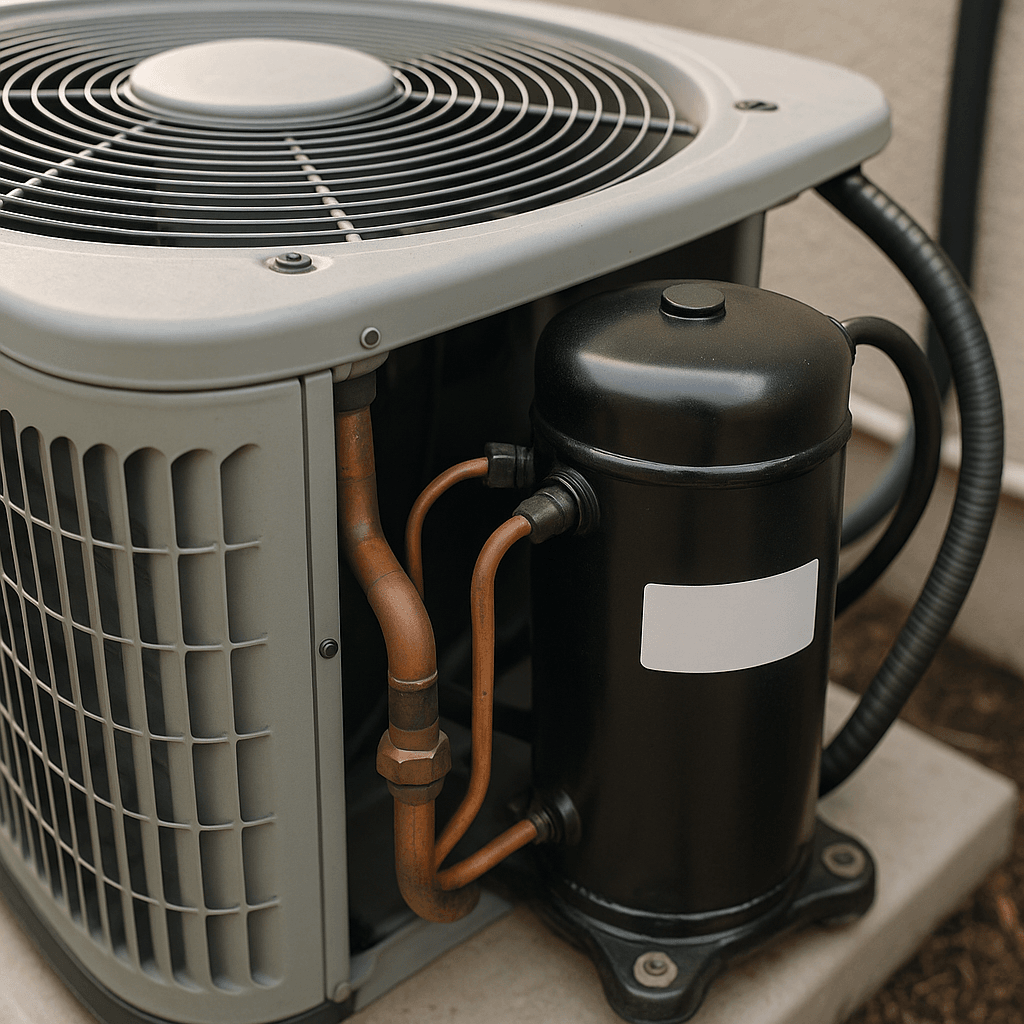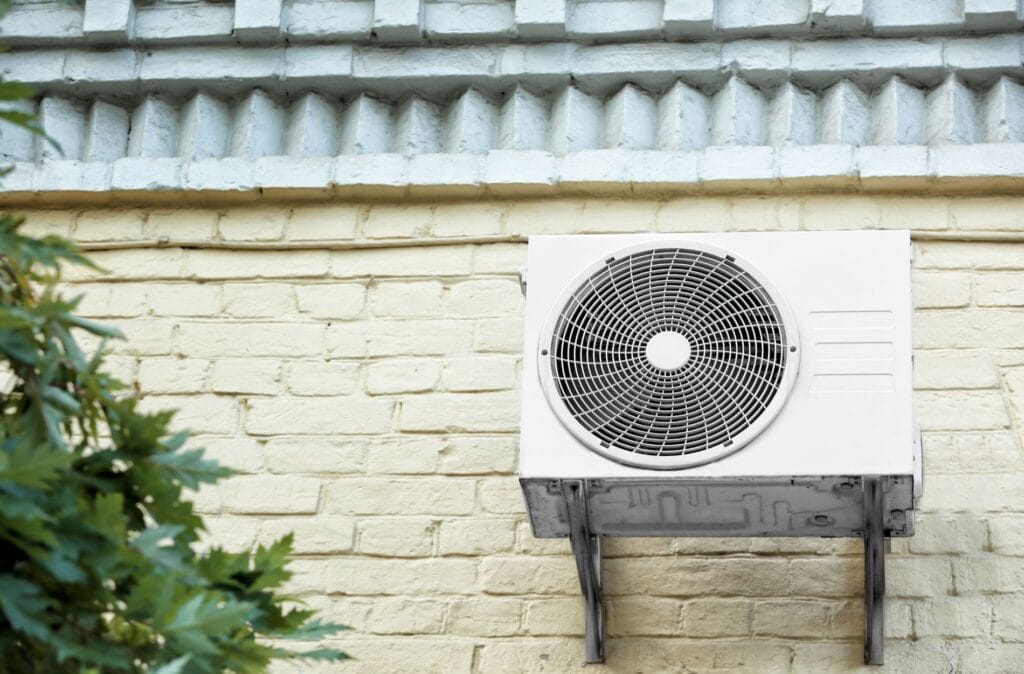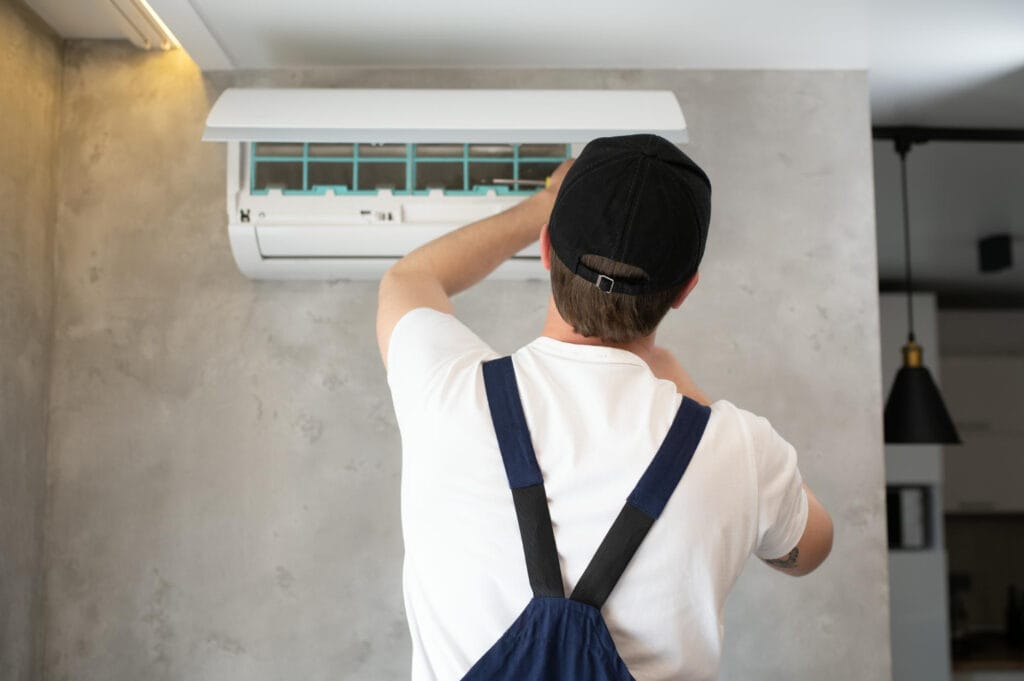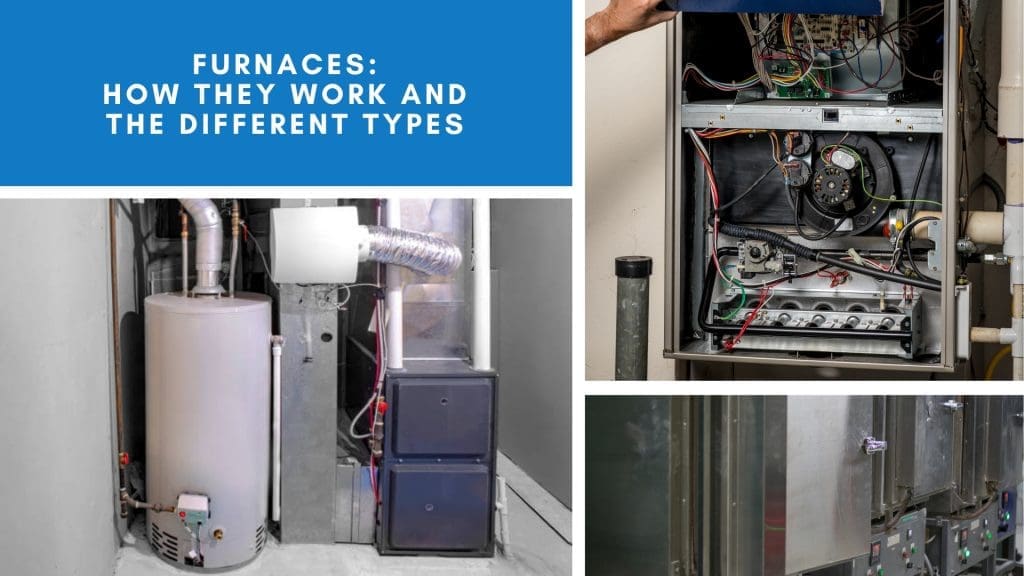In the realm of HVAC systems, many myths circulate, with one of the most concerning being the potential for an AC Compressor blow up. As a seasoned HVAC professional, I understand the importance of addressing these fears with reliable information. This article will demystify the myths surrounding AC compressor explosions and provide you with peace of mind.

Can an AC Compressor Really Explode?
The idea of an AC compressor explosion is enough to cause anyone alarm. However, the truth is that while AC compressors can fail, the likelihood of a catastrophic explosion is exceedingly rare. Let’s explore why.
Understanding the Function of an AC Compressor
The compressor is the heart of your air conditioning unit. It compresses the refrigerant and circulates it through the coils to cool the air. This process is essential for the cooling mechanism of an AC unit, as it transforms refrigerant from a gas to a liquid state, enabling heat exchange.
In essence, the compressor maintains the cycle of refrigeration that keeps your home comfortable. Its role is akin to a pump in a water system, ensuring continuous flow and pressure. Without the compressor, the entire cooling process would come to a halt, leaving your home unbearably warm.
Construction and Safety Measures
Modern AC compressors are built with numerous safety features to prevent catastrophic failures. These include pressure relief valves and thermal overload switches, designed to automatically shut down the system in case of abnormal conditions. Manufacturers adhere to strict safety standards, ensuring that even in the event of a malfunction, the likelihood of an explosion is minimized.
Additionally, compressors are housed in durable, heat-resistant casings that provide an extra layer of protection. This construction is designed to withstand significant stress and temperature variations, further reducing any explosion risk. The integration of such safety measures underscores the commitment to user safety in HVAC design.
History of AC Compressor Failures
While there have been instances of AC compressor failures, these incidents are rarely, if ever, explosive. Most failures result from mechanical or electrical issues that lead to a loss of functionality rather than a physical hazard. Historical data supports the rarity of compressor explosions, with reports often rooted in misinformation or sensationalism.
The majority of compressor failures are due to wear and tear, lack of maintenance, or manufacturing defects. These failures manifest in loss of cooling efficiency, strange noises, or complete shutdowns, none of which involve explosive outcomes. Understanding this history helps dispel fears surrounding compressor safety.
The Myth of AC Explosions
The concept of an air conditioner exploding often stems from misunderstandings or exaggerated stories. Let’s debunk some common myths:

Myth 1: Overheating Leads to Explosions
While an AC unit can overheat, modern systems are equipped with safety features designed to shut down the system before any dangerous conditions arise. Overheating is typically managed by sensors that detect excessive temperatures, triggering an automatic shutdown to prevent damage.
The overheating myth likely originates from older systems or poorly maintained units that lacked such advanced safety mechanisms. However, even in these cases, failure results in system shutdown rather than an explosion. The evolution of HVAC technology prioritizes user safety, effectively mitigating overheating risks.
Myth 2: Refrigerant is Explosive
Refrigerants in air conditioning systems are not flammable. Therefore, they do not pose an explosion risk under normal operating conditions. Common refrigerants, such as R-410A, are specifically chosen for their stability and safety, even under high pressure.
The misconception about refrigerants being explosive may come from confusion with other gases or substances. It’s important to note that while refrigerants can be harmful if inhaled, their chemical composition is designed to prevent combustion. Understanding the nature of refrigerants helps clarify their role and dispel myths of explosiveness.
Myth 3: AC Units Can Blow Up Like Bombs
This myth is largely fueled by misconceptions. An air conditioning unit is not designed to contain explosive materials, and its components are not subjected to conditions that would cause an explosion. The materials used in AC units are selected for their durability and safety, minimizing any risk of such dramatic failures.
The notion of AC units blowing up like bombs is more a product of fictional storytelling than reality. In practical terms, the engineering and design of these systems focus on preventing any scenario that could lead to an explosion. Recognizing the gap between myth and reality is key to alleviating unfounded fears.
Can an Air Conditioner Overheat?
Yes, an AC unit can overheat, but this is not synonymous with an explosion risk. Overheating can be caused by several factors, including blocked airflow, dirty coils, or a malfunctioning fan. It’s crucial to ensure regular maintenance to prevent overheating and extend the life of your unit.
Causes of Overheating
Overheating often results from inadequate ventilation, which can trap heat within the unit. Dirty filters and coils obstruct airflow, forcing the system to work harder and generate excess heat. Similarly, a malfunctioning fan may fail to dissipate heat effectively, leading to elevated temperatures.
Electrical issues, such as faulty wiring, can also contribute to overheating. These problems cause components to operate inefficiently, producing more heat than the system can handle. Identifying and addressing these causes through regular maintenance helps prevent overheating and prolongs system lifespan.
Preventive Measures
Regular maintenance is the cornerstone of preventing AC overheating. Cleaning or replacing filters, ensuring unobstructed airflow, and checking fan functionality are essential steps. Regular inspections by a professional HVAC technician can detect potential issues before they escalate into significant problems.
Installation also plays a critical role in preventing overheating. Ensuring the unit is placed in a well-ventilated area, away from direct sunlight and obstructions, can significantly reduce the risk of overheating. These preventive measures help maintain optimal performance and safety.
Professional Intervention
If you notice signs of overheating, such as unusual noises or warm air from vents, it’s advisable to consult a professional. An HVAC technician can perform a thorough assessment, identifying and resolving underlying issues. Professional intervention ensures that your unit operates safely and efficiently, minimizing any risks associated with overheating.
Engaging professional services not only addresses immediate concerns but also provides peace of mind. A qualified technician brings expertise and experience, offering solutions tailored to your unit’s specific needs. This proactive approach enhances system longevity and reliability.
What Happens When an AC Compressor Fails?
by Andrew Neel (https://unsplash.com/@andrewtneel)
When an AC compressor fails, it typically ceases to function, resulting in no cooling. This can be inconvenient, especially in the hot Los Angeles climate, but it is not a safety hazard.
Symptoms of Compressor Failure
Compressor failure often manifests as a complete loss of cooling capacity. The system may still run, but it will not produce cold air. Other symptoms include unusual noises, such as rattling or humming, and frequent tripping of circuit breakers.
Visual inspection may reveal signs of wear or damage, such as burnt wires or oil leaks. These indicators suggest internal issues that require professional attention. Recognizing the symptoms of compressor failure is crucial for timely intervention and repair.
Long-Term Effects
While compressor failure is not dangerous, it can lead to discomfort and increased energy bills. A malfunctioning compressor forces the system to run inefficiently, consuming more power without delivering adequate cooling. This inefficiency results in higher operational costs and potential strain on other components.
Prolonged neglect of compressor issues can exacerbate the problem, leading to more extensive damage and costly repairs. Addressing compressor failures promptly can mitigate these long-term effects, ensuring continued comfort and cost-effectiveness.
Repair and Replacement Options
Repairing a failed compressor often involves addressing underlying issues, such as electrical faults or refrigerant leaks. In some cases, replacement may be necessary, especially for older units or severely damaged compressors. A professional HVAC technician can assess the situation and recommend the most appropriate course of action.
Replacement provides an opportunity to upgrade to more efficient, modern systems, enhancing overall performance and energy savings. Whether repairing or replacing, professional input ensures that the solution aligns with your specific needs and budget.
The Importance of Professional Inspection
While some basic maintenance can be performed by homeowners, a professional inspection is invaluable. A qualified HVAC technician can identify potential issues before they escalate, ensuring your system operates safely and efficiently.
Benefits of Regular Inspections
Regular inspections provide a comprehensive evaluation of your HVAC system, identifying problems that may not be apparent to the untrained eye. Technicians can detect subtle signs of wear, electrical issues, or refrigerant imbalances, addressing them before they lead to significant failures.
Inspections also ensure compliance with manufacturer guidelines and safety standards. This proactive approach enhances system reliability, extends lifespan, and maintains optimal efficiency. The benefits of regular inspections far outweigh the costs, offering peace of mind and long-term savings.

Selecting a Qualified Technician
Choosing a reliable HVAC technician is crucial for effective maintenance and repairs. Look for professionals with certifications, experience, and positive customer reviews. A reputable technician will provide transparent, honest assessments and prioritize your system’s safety and performance.
Engaging a trusted professional fosters a long-term relationship, ensuring consistent quality and support. A qualified technician becomes a valuable partner in maintaining your home’s comfort and safety, offering expertise and advice tailored to your needs.
Why Choose LC Heating and Air Conditioning?
As a trusted local HVAC service provider in the Los Angeles metropolitan area, LC Heating and Air Conditioning is committed to ensuring your home remains comfortable and safe. Our team is experienced, reliable, and ready to address any HVAC concerns you may have.
We offer a range of services, from routine maintenance to complex repairs, all delivered with a focus on customer satisfaction. Our technicians are equipped with the latest tools and knowledge, ensuring efficient and effective solutions. By choosing LC Heating and Air Conditioning, you entrust your system to professionals dedicated to excellence and safety.
Conclusion – Can an AC Compressor blow up?
In summary, the fear of an AC compressor explosion is largely unfounded. While AC units can experience failures, modern systems are designed with safety in mind, minimizing any risk of explosion.
Understanding the realities of AC compressor failures and debunking myths helps alleviate unnecessary fears. If you’re experiencing issues with your AC unit or simply want the reassurance of a professional inspection, don’t hesitate to contact LC Heating and Air Conditioning. We’re here to ensure your system runs smoothly, keeping your home cool and comfortable.
By choosing professional services, you ensure your home’s safety and comfort, backed by expert knowledge and reliable support. Rest easy knowing that your HVAC system is in capable hands, committed to delivering the best in performance and peace of mind.


